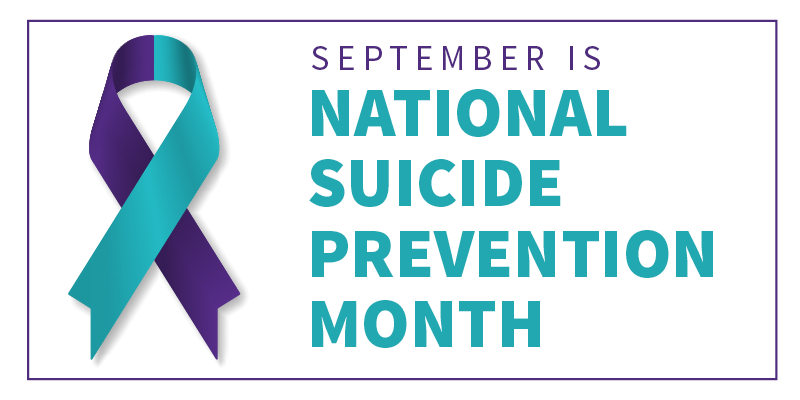This article may be triggering for some people,
read at your own risk!
September is National Suicide Prevention Month – a time to talk about the impact of suicide, especially on high school students. Although in the past most people only recognized September 10th to the 16th as National Suicide Prevention Week, the American Foundation for Suicide Prevention (AFSP) now recognizes the entire month of September as National Suicide Prevention Month.
NAMI (National Alliance on Mental Illness) says, “While suicide prevention is important to address year-round, Suicide Prevention Awareness Month provides a dedicated time to come together with collective passion and strength to address this difficult topic. The truth is, we can all benefit from honest conversations about mental health conditions and suicide because just one conversation can change a life.” Which I think they sum up perfectly. And even though September has come to an end, bringing up suicide prevention is essential to destigmatize such a harmful action.
But the month is also a time to mourn all the people we have lost to suicide and all who survived. An anonymous Dowling student told me her story of how she’s dealt with suicide. “It all started when I was twelve really. I wanted to feel something so I turned to self-harm in the form of cutting. And for a while, it worked. But when my mom found out I went to Iowa Lutheran Behavioral Health for a 4-month mental health inpatient program and then I went to outpatient after I left.” She told me that when she came back all of her teachers worked with her and helped her get caught back up which she was so grateful for. “Last year I relapsed and was admitted into Clive Behavioral Center for 2 weeks. After I left I started seeing my current therapist who has helped me see progress. And that’s so important because I don’t know where I’d be without that progress and for awhile I didn’t see it.”
There is so much stigma around suicide. Now with social media, more judgement gets around much quicker. But what is stigma? The Merriam-Webster Dictionary defines stigma as “a set of negative and often unfair beliefs that a society or group of people have about something.” When it comes to breaking the stigma of suicide, speak up. If you have dealt with mental health issues, talking about your experience can help others feel more welcome talking to you.
NAMI also says that suicide is the second leading cause of death among people ages 15 through 24. But suicidal thoughts can impact anyone, no matter age, gender, sexual orientation, race, or background. And they can come and go. After the COVID pandemic, many teens reported elevated symptoms of depression, anxiety, suicidal thoughts, and other mental health issues. And now that the world has gone back to semi-normal, those issues haven’t gone away.
I personally have dealt with mental health issues since a very young age, and if you ask my family members they will tell you that I have always been a very anxious person. I was diagnosed with anxiety and depression by my doctor in 6th grade. But even before that, I saw a therapist who diagnosed me with GAD, generalized anxiety disorder, in 5th grade. Throughout the pandemic till now, I have dealt with suicidal thoughts, anxiety, depression, and stress. I see a therapist weekly and am on medication to control my anxiety and depression. And I’m okay with it. 2 years ago I wouldn’t have admitted that I do, but talking about my own mental health can help other people reach out.
There are warning signs when someone is considering suicide. Some are: talking about being trapped or in pain, having an obsession with death, sleeping too much or too little, displaying extreme mood swings, or withdrawing from their favorite activities. But it is essential to know that you never have to carry someone’s life on your shoulders. In every instance, it is okay to tell an adult because it might save their life. Teachers, faculties, coaches, and our school counselors are all trusted professionals who can help you get on a journey of recovery.

Knowing you are not alone is important. So talk to your loved ones and friends who you think might be struggling. You can recommend that they speak to a professional. Just knowing you can talk to people is important. The counselors at our school are here to talk through your emotions.
If you feel you are a danger to yourself or if you are worried about someone’s safety, talk to a trusted adult. Other resources include 988, the national suicide prevention hotline, Unity Point Behavioral Health Clinic, Clive Behavioral Health, Lifeworks Counseling, 515 Therapy and Counseling, and a number of other resources found on the Student Safety Tile in OnCampus.


